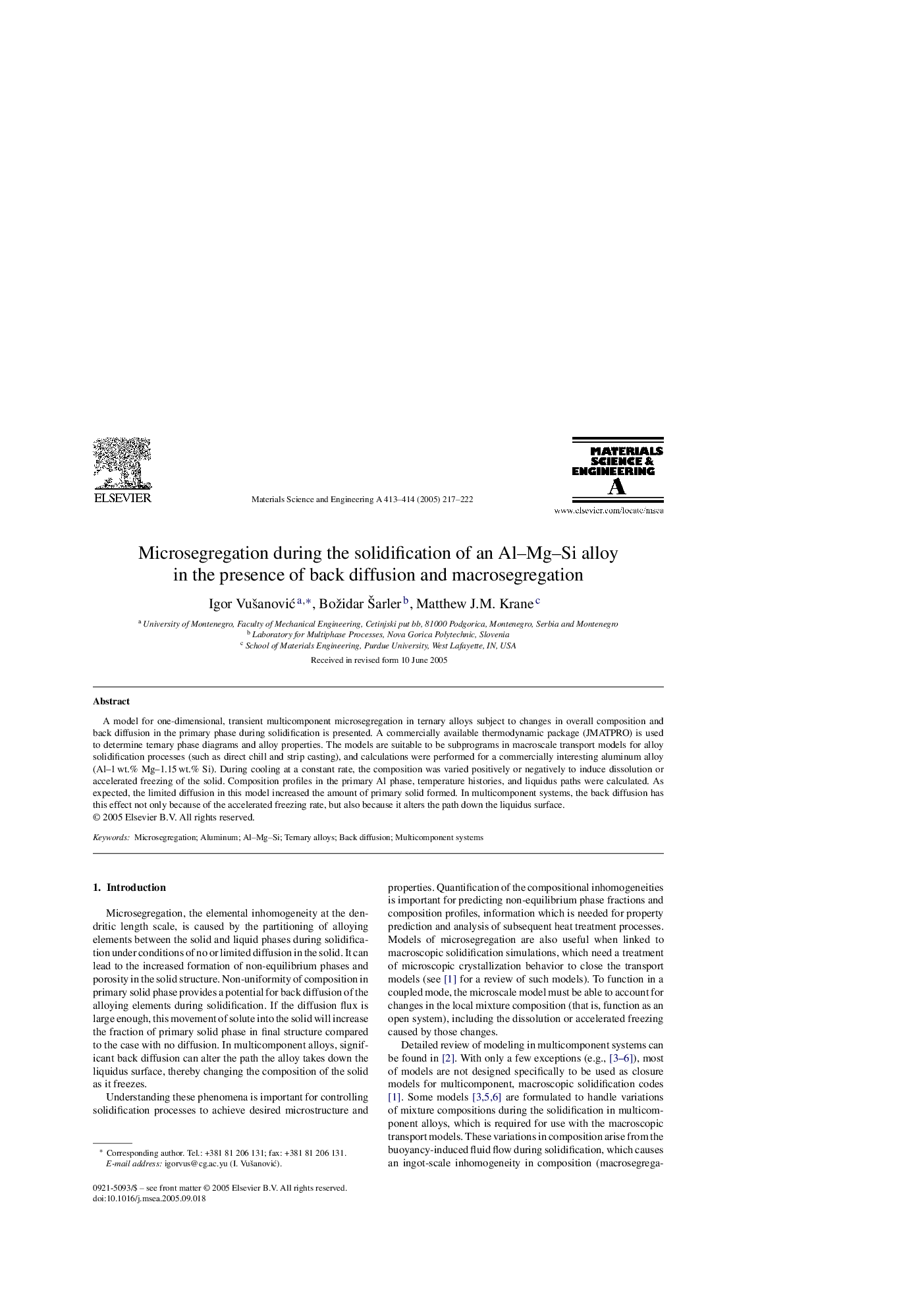| Article ID | Journal | Published Year | Pages | File Type |
|---|---|---|---|---|
| 9795474 | Materials Science and Engineering: A | 2005 | 6 Pages |
Abstract
A model for one-dimensional, transient multicomponent microsegregation in ternary alloys subject to changes in overall composition and back diffusion in the primary phase during solidification is presented. A commercially available thermodynamic package (JMATPRO) is used to determine ternary phase diagrams and alloy properties. The models are suitable to be subprograms in macroscale transport models for alloy solidification processes (such as direct chill and strip casting), and calculations were performed for a commercially interesting aluminum alloy (Al-1Â wt.% Mg-1.15Â wt.% Si). During cooling at a constant rate, the composition was varied positively or negatively to induce dissolution or accelerated freezing of the solid. Composition profiles in the primary Al phase, temperature histories, and liquidus paths were calculated. As expected, the limited diffusion in this model increased the amount of primary solid formed. In multicomponent systems, the back diffusion has this effect not only because of the accelerated freezing rate, but also because it alters the path down the liquidus surface.
Related Topics
Physical Sciences and Engineering
Materials Science
Materials Science (General)
Authors
Igor VuÅ¡anoviÄ, Božidar Å arler, Matthew J.M. Krane,
